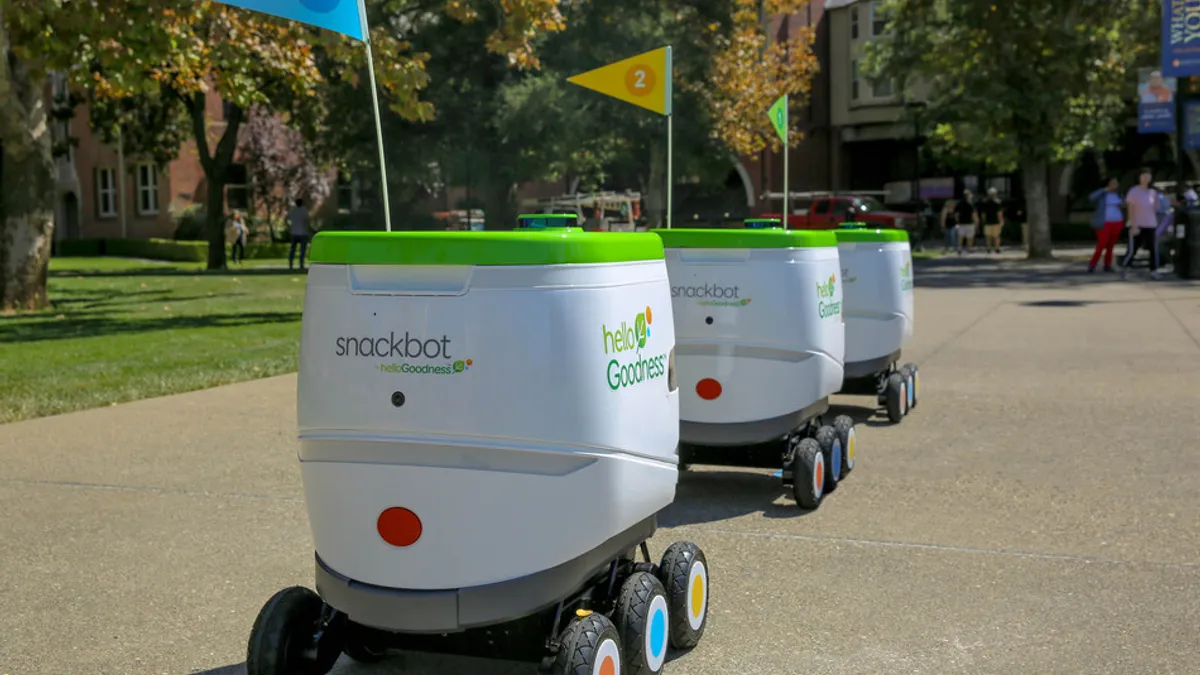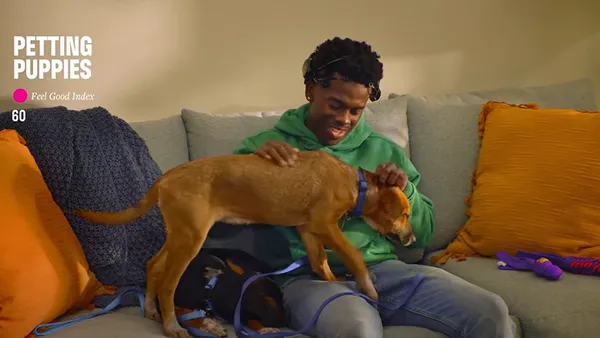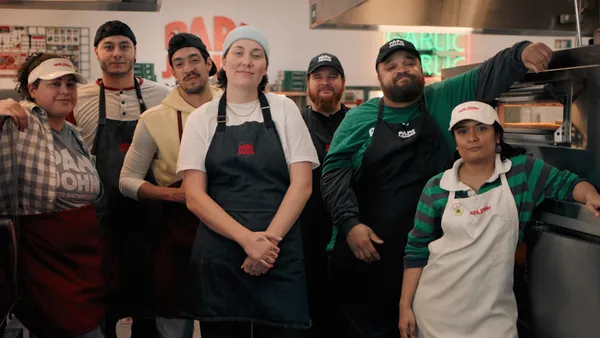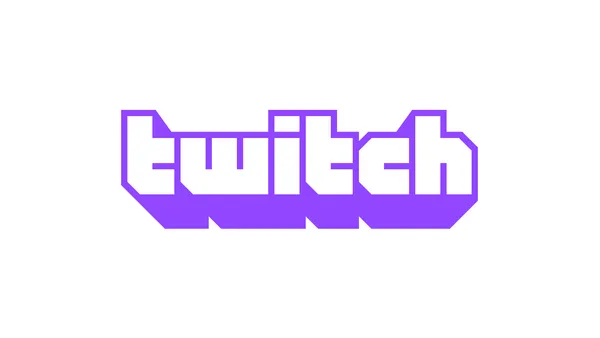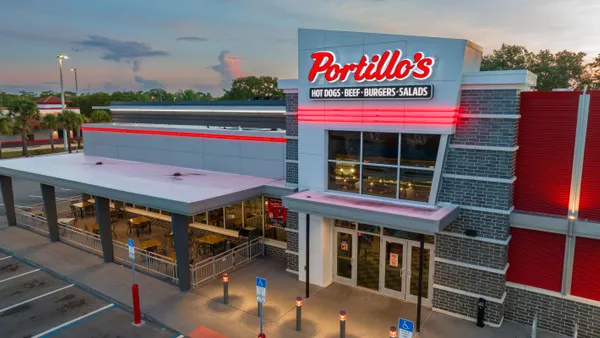Dive Brief:
- PepsiCo just became the first major food and beverage company in the U.S. to deploy snack delivery robots on a college campus, according to a press release. The company rolled out the snackbots at the University of the Pacific Thursday.
- The delivery robots were created in collaboration with San Francisco Bay Area-based company Robby Technologies. Pepsi will supply the robots with food and drink from its Hello Goodness portfolio, which includes products like Baked Lay's, SunChips, Pure Leaf Tea, bubly, LIFEWTR and Starbucks Cold Brew.
- Students can order snacks to be delivered to more than 50 designated drop points on campus between 9 a.m. and 5 p.m. using the snackbot app. Between three to five delivery robots — which come with cameras and headlights that allow it to navigate in inclement weather — will operate at once. Each bot has can travel 20 miles on a single charge.
Dive Insight:
It seems that vending machines are now a passé way to get your snack fix. Pepsi's snackbots are a response to the increasing consumer demand for convenience and desire for snacks throughout the day.
With the snacking category already at $89 billion and growing at a 3% clip, the continued growth is inspiring companies to jump on board and offer new options to affect what, when and how consumers eat. With Datassential estimating that consumers eat about four to five snack foods a day, it makes sense that Big Food is aiming to play a bigger role in this trend. And Pepsi is using these snackbots to not only showcase their snack offerings, but also integrate into students' lives by delivering them right on their college campus.
Pepsi was smart to push out this concept on a university campus, where hectic schedules and a constant on-the-go-between-classes mentality makes the population primed for snacking. The bots also give the company a leg up when students go to the grocery store because they may pick up more of the branded products that got them through study sessions.
Although there are no current plans to expand the concept out to other university campuses, it would not be surprising to see more snackbots from either Pepsi or other snacking companies to begin making an appearance. As for rolling out into other sectors of society, Pepsi has its work cut out for it. The bots are currently only able to roll 20 miles on a single charge, which could pose problems in cities where multiple orders need to be fulfilled between charges.
Although unique because of their snacking slant and campus location, Pepsi's robots aren't the only competition for food and restaurant delivery. In 2017, Starship Technologies partnered with Postmates to release a robot delivery service in Washington, D.C. for late-night munchies and other to-go order needs. Similarly, the company partnered with Just Eat in England to bring to-go order robots to London in 2016.
But it's not just snacks or food delivery. Using robots to bring food to consumers is becoming increasingly common for grocery stores. Kroger launched its robot delivery service in Scottsdale, Arizona and Walmart launched self-driving delivery vehicles in Phoenix, Arizona. At the same time, in the Bay Area, AutoX is working to reinvent the concept of grocery delivery by offering a convenience store in its trunk – similar to what PepsiCo has on the University of the Pacific campus.
With the success of the concept, companies like Robby Technologies and Starship Technologies may find their robots being acquisition targets as Big Food continues to find innovative ways to reach customers. If not, both technologies will likely spark the interest from other companies and contribute to the proliferation of robotic delivery services that is only just beginning.


